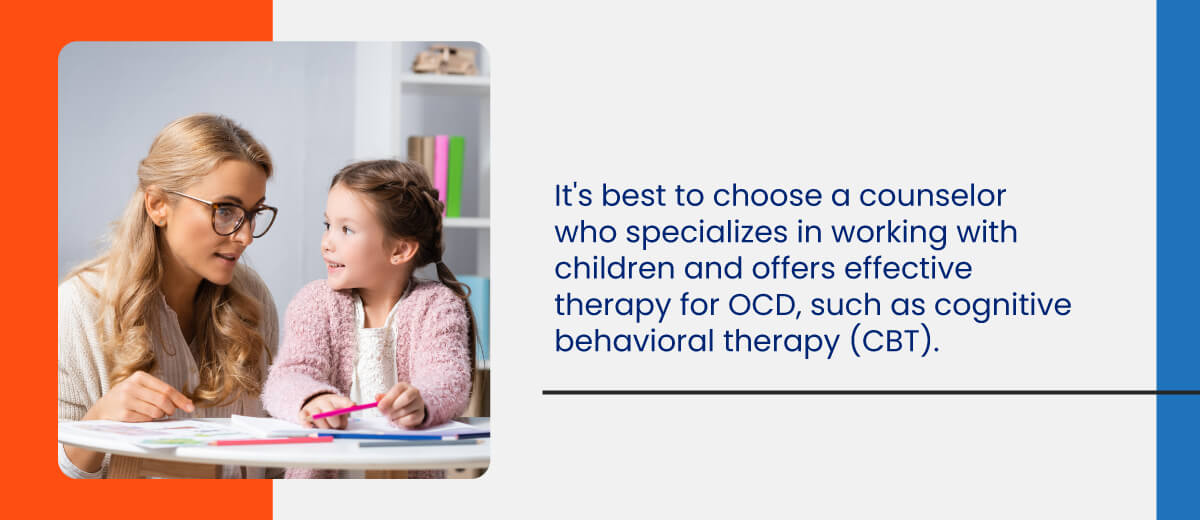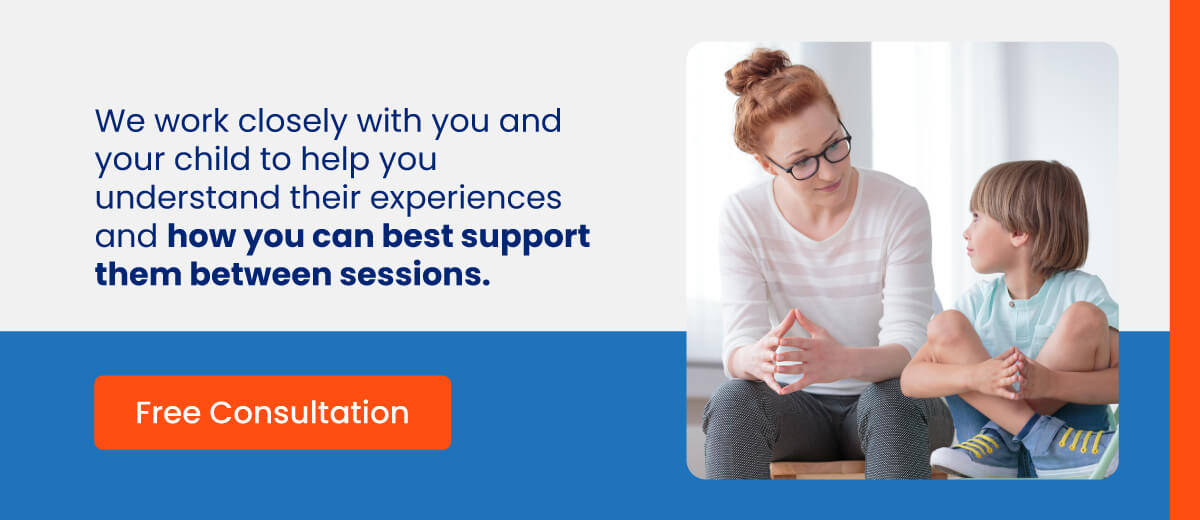Obsessive-compulsive disorder (OCD) is a type of anxiety that interferes with a child’s daily life. Learning how to parent a child with OCD is important because you play a significant role in symptom management. The proper support can help your child practice coping skills regularly, reduce anxiety and develop positive behaviors. Learning about OCD and seeking effective treatment are the first steps toward helping your child find relief.
Table of Contents
OCD: Signs and Symptoms
OCD causes obsessive thoughts and compulsive behaviors stemming from anxiety. All children can experience anxious thoughts and engage in unusual habits, but kids with OCD experience persistent unwanted thoughts and behaviors. A child with OCD frequently feels they need to perform certain behaviors because of distressing thoughts, images or impulses. If your child has OCD, they may repeat the following types of actions over and over to relieve anxiety:
- Counting
- Saying words or phrases
- Handwashing
- Placing objects in a particular order
- Performing tasks in a particular order
- Checking things multiple times, such as making sure a window is closed or a door is locked
- Creating and following specific rules in a certain order
Children with OCD typically perform compulsive actions because they feel the actions will prevent bad things from occurring. For example, a child may fear they will lose their family if they don’t perform a task in a certain order or develop a serious illness if they don’t wash their hands several times an hour. OCD interferes with a child’s daily living, but counseling and support can help them manage symptoms.
What Triggers OCD in a Child?
OCD can be passed down from one family member to another through genetics, but the following factors can also cause a child to develop it:
- Early trauma, such as abuse
- Relationship stress
- School stress
- Stress or fear a child develops after an illness such as a streptococcal infection
- Life transitions
- Subcortical and frontal cortex brain structure abnormalities
The Effect of OCD on Children’s Behavior
OCD is more than perfectionism and organization. It causes deep distress that can affect a child’s academic performance, home life and social life. Without the proper support, a child with OCD may find it challenging to control their impulses and behaviors, leading to:
- Tantrums or episodes of severe anger.
- Avoiding certain people, situations or places.
- School absences.
- Difficulty concentrating.
- Disrupting class activities with repetitive phrases or actions.
- Challenges completing school work or chores.
- Asking the same questions repeatedly.
- Challenges transitioning between tasks — especially when entering or exiting a room.
- Excessive erasing or rewriting when working on assignments.
- Frequent restroom trips or trips to the school nurse.
- Frequently seeking assurance.
- Adjusting and readjusting objects such as desks, desk contents, locker contents or backpack items.
- Social isolation if bullying occurs.
How to Help a Child With OCD
If you suspect your child has OCD, finding a compassionate, experienced mental health professional is the best way to support them. It’s best to choose a counselor who specializes in working with children and offers effective therapy for OCD, such as cognitive behavioral therapy (CBT).
CBT can help your child understand the connections between their feelings, thoughts and behaviors and develop coping strategies. Exposure and response prevention (ERP) is a specialized type of CBT that helps children resist impulses and learn that the outcomes are tolerable and not as bad as they expect.

The Role of Parents in OCD Treatment
Parenting a child with OCD requires support, patience and understanding. You play a significant role in your child’s OCD treatment and symptom management, and you can help them thrive with the following tips:
Communicate With Your Child’s Therapist
The more your child’s treatment provider knows about their behaviors and triggers, the better they can help them. Communicate frequently with their therapist, providing details about what you notice at home and any behavioral reports from your child’s teacher. It’s also important to learn from the therapist so you can understand unique challenges and how to support your child effectively.
Celebrate Small Improvements
Reaching small milestones in OCD treatment can be incredibly challenging, so it’s important to recognize and celebrate your child’s growth. Resisting a compulsion during a stressful time or completing a daily routine five minutes faster than before is a huge step for a child with OCD, and your encouragement can make a big difference.
Help Your Child Resist Compulsions
It’s important to accept, understand and support your child without participating in their compulsions or rituals. Helping them practice coping skills and altered behaviors between therapy sessions helps them learn how to manage OCD effectively.
Avoid criticizing your child’s behaviors or helping them carry out rituals and compulsions. Instead, calmly explain to your child that you recognize their symptoms and you want to help them resist their impulses. The goal is to show acceptance and support without accommodating your child’s OCD. For example, you can refuse to flip a light switch multiple times when your child requests it, but you can also speak to them with patience and understanding.
Help Your Child Accept Uncertainty
Part of OCD treatment is learning how to cope with doubt and uncertainty. Try to avoid long debates and rationales when your child seeks accommodation or reassurance. Recognize they are trying to gain total certainty you cannot provide.
Exposing your child to this feeling helps them practice moving on when doubts pop up. For example, keeping your communication simple and clear, such as a quick “yes” or “let’s move on” when they worry about whether they locked a door, can help them accept their uncertainty.
Consider Your Child’s Mood
Everyone has occasional bad days, and a challenging day can increase OCD symptoms. Extend extra patience with your child on their bad days, and understand that resisting their compulsions may be more difficult on certain days than others. While you should encourage resisting compulsions as much as possible on your child’s good days, give them some additional grace on overly stressful or upsetting days. Continue to avoid accommodating compulsions, but try to give them space.
Manage Prescribed Medications Safely
Only an experienced medical professional can determine a safe medication dosage for your child. Let their doctor know immediately if you notice side effects or think a higher dosage may be necessary, and never change a dosage without consulting the doctor.
Help Your Child Manage OCD at Courageous Kids Counseling
Parental support and professional therapy help children learn how to manage OCD symptoms effectively. Courageous Kids Counseling offers CBT and exposure therapy to help children overcome compulsive thoughts and become more comfortable with uncertainty.
Our experienced therapists guide your child through treatment one step at a time, validating their experiences and gradually building trust. We work closely with you and your child to help you understand their experiences and how you can best support them between sessions. Contact us to learn more about how we can help your child manage OCD symptoms, reduce anxiety and develop positive behaviors.



